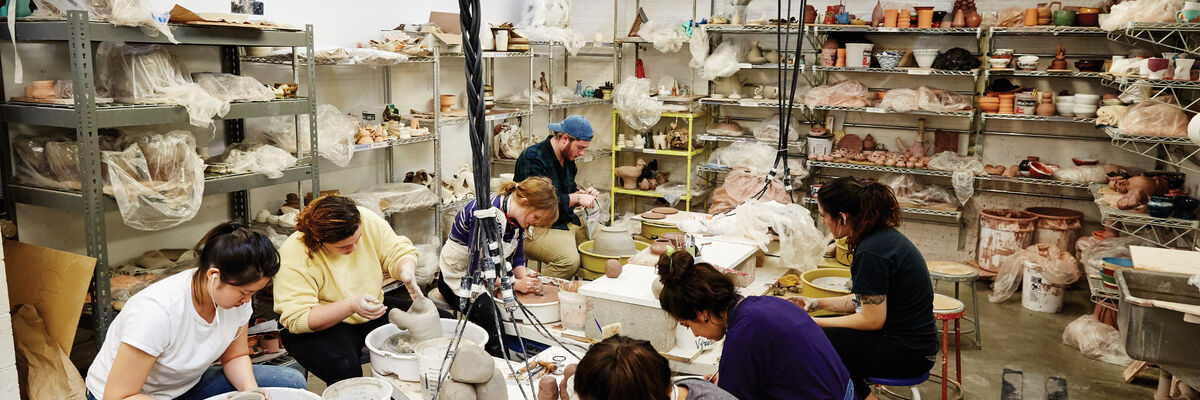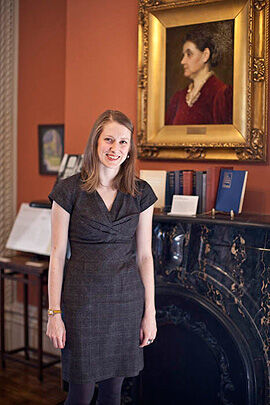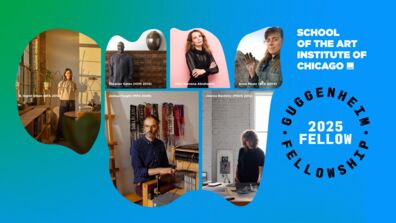
Connecting with Community

by Rachel Buckmaster (MA 2011)
Direct community engagement is what attracted Lisa Junkin (MA 2007) to her current position as the first full-time Education Coordinator at the Jane Addams Hull-House Museum. This role is ripe with opportunities to collect personal stories, rich residential memories, and community input. Junkin's work each day is enriched by institutional encouragement to rethink how museums can serve nontraditional publics.
After receiving her undergraduate degree in Art History and working in museums in the Washington, DC area, Junkin knew she wanted to do outreach. She was drawn to the Master of Arts in Arts Education program at SAIC because it is rooted in social justice.
"I wanted to make sure that I was looking at these issues that I care about—social justice and activism—in the arts context. For me, there is a really great connection between the two, and (SAIC) seemed like the ideal place for me to investigate the role that museums can play in society," says Junkin.
With education at the core of the Hull-House Museum's mission, Junkin pushes the boundaries of outreach and public programming beyond traditional audiences. She finds direct value in letting the community inform projects rather than the other way around. By creating an environment grounded in history that brings people together to discuss common concerns and interests, Junkin has allowed the conversations and connections that take place to shape several programs.
An example is a current partnership with former Conservative Vice Lords gang members, who approached the staff with a desire to create an exhibit that tells their history. "It felt like what we could provide was a service," says Junkin. "We can provide our exhibit-making skills to a community that has the stories, the artifacts, the people and the memories."
Junkin's experience at SAIC provided her with a foundation for valuing a strong connection with the larger community. While in her master's program, she learned that Chicago is an ideal location for academic pursuits—her classes had her out in the community exploring the rich history and engaged arts sector. It was an ideal place for Junkin to merge her interests in arts education, outreach, and public programming. "In a lot of my Arts Education classes, we weren't in the classroom—we were out in the community, we were working with schools and with organizations," she says. "The city was our classroom, and it was a great way to learn."
Working at Hull-House allows Junkin to remain engaged, witnessing daily the wealth of experience in the community. She is able to be a part of a shift that she sees happening at institutions—letting the surrounding world truly inform programming and curatorial decisions—and has continuing opportunities to learn from the diverse audiences she serves.
Programs such as the Sex Positive Documentary Film Series, Re-Thinking Soup, and Preservation Detectives activities with elementary students have reframed her thoughts on the role of the museum as a public institution and personalized lessons inherited from Jane Addams herself. "Direct services were absolutely a part of the Hull-House settlement, but it was about something bigger than that—it was about discovering the shared aspects of our humanity. For Jane Addams, the arts were always central to that project of making democracy."
Continuing the Hull-House legacy of using form, environment, and collaboration to bring a vision into being, Junkin draws from the wealth of societal experience around her to enrich her own work, career path, passion for arts education, and contributions to the community.
